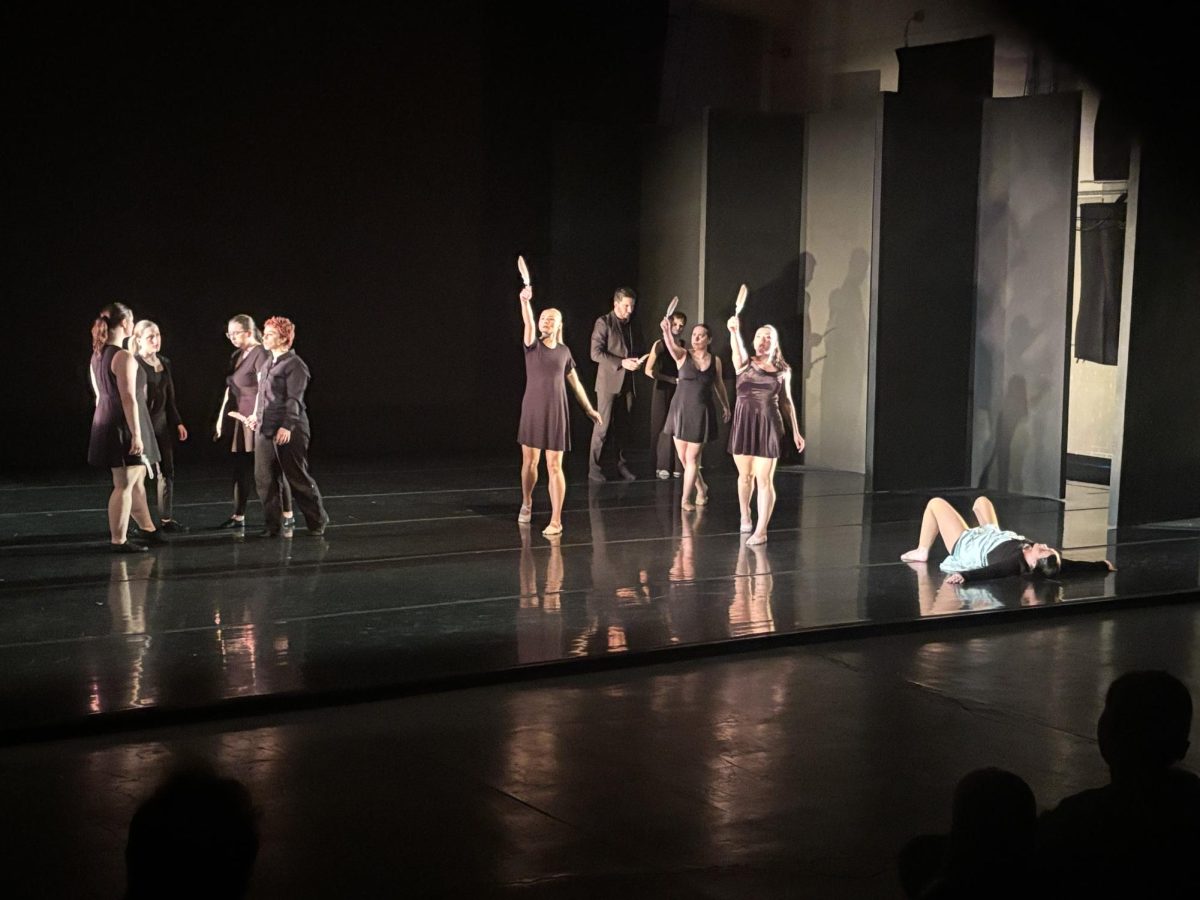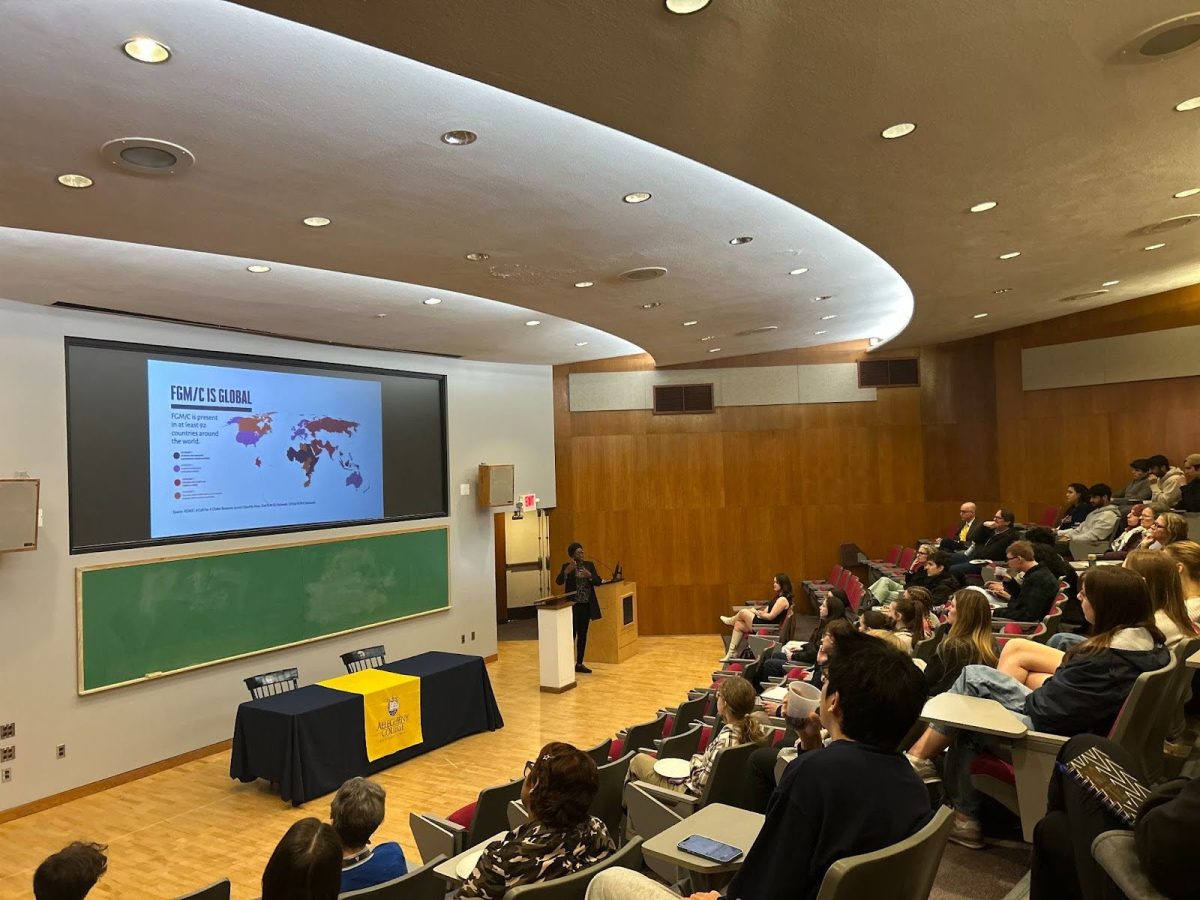BY MEAGHAN WILBY
Contributing Writer
wilbym@allegheny.edu
Since moving to the world’s largest English speaking country, the thought that I would have to learn a new language never crossed my mind. Coming from New Zealand, I grew up speaking English. I learned German for four years in high school and can say a basic “hello, my name is Meaghan” in Maori: the native tongue of the indigenous people of New Zealand. I knew I was going to have an accent when I arrived and that I would come across various changes in slang and colloquial terms, but I completely underestimated exactly how different the English Language can be.
I guess I grew up speaking what could be termed as “Down Under,” or New Zealand English. This can only be described as a cosmopolitan mix of British, Australian and American English with our own Kiwi twist to it. Here, things like “duvet”, “maccas” and “hokey pokey” tend to leave me staring into blank faces. Apparently, in America you sleep under a comforter, not a duvet, McDonalds is referred to as Mickey-D’s and hokey pokey is the only flavor of ice cream you don’t have.
You throw your garbage into the trash and not the rubbish bin. During summer you cook on a grill, not a barbeque and ketchup shall by no means be referred to as tomato sauce unless you prefer eating your fries with no sauce at all. If you offer to plait your friend’s hair they have no idea that all you want to do is give them a nice braid. You go on vacation, not holiday, and when you are there you wear flip flops, not jandals. You park your car in a parking lot, not a carpark, and cross a crosswalk, not a pedestrian crossing. In Fall–not autumn–you wear a robe, not a dressing gown, and if you try to use heaps as a term of measurement people may laugh in your face.
Aside from these general differences I have also found that there are different languages within a language itself. The language of food is one that gets me more often than any others. What at home we would call a biscuit is a cookie here, and when I want to pig out on lollies I have to ask for candy instead. Not to mention how going to the supermarket takes three times as long because I don’t recognize any of the branding and I have to remember to ask for a cart and not a trolley. Going out for dinner can be problematic as well. At home, an entrée and an appetizer are essentially the same thing and then you have your main course.
Then there is the language of sport. Football and all its terminology is a fairly foreign concept to me. I now know that you sit on the bleachers, not the stands, and tailgating is when you sit around and drink and eat before a game or concert and everyone does it. At basketball, I wear my basketball shoes, not my basketball boots, and we warm up by jump-roping, not skipping. We go to practice, not training, and when there we wear pinnies not singlets. In the weight room I have to convert between pounds and kilograms. I’ve stopped being shocked when people say it is 60 degrees outside because I know that means we are not going to burn–it is only around 15 degrees Celsius. One of the first things I learned how to do was quickly convert between American and New Zealand dollars as I soon fell in love with all the new shops here.
Probably something I have to make the most conscious effort about is when I refer to High School. In New Zealand you go to Primary, not Elementary School, then you go to College and then University. I think this baffled the most amount of people when I would tell stories of being at college.
One saying that I cannot wrap my head around and refuse to adapt is saying that I “lucked out” when something good happens. If you luck out then surely that means you are out of luck?
I feel as if I have a fairly good grasp on the American language now. The accent still gets people but it keeps things interesting. Hopefully by the end of all four years I shall be able to add that I am fluent in a second language to my resume. I just hope I don’t pick up an accent.






